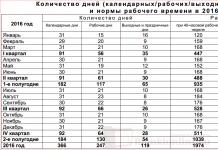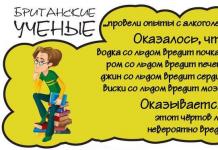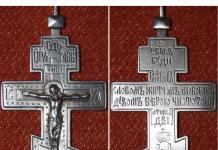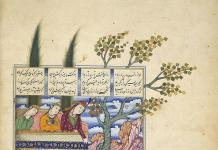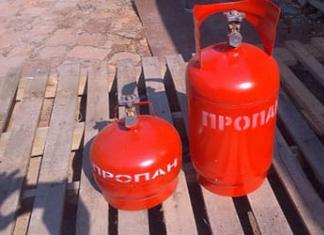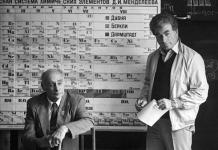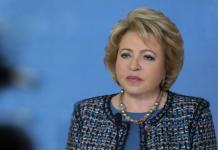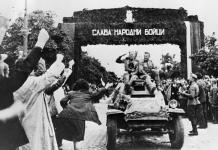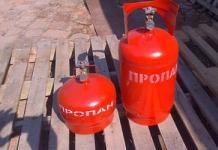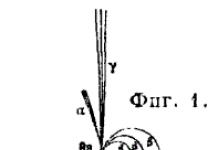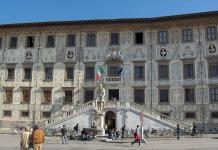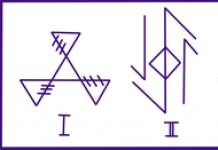On March 3, Bulgaria celebrates Liberation Day from the Ottoman yoke. This is one of the main national holidays of the country, established in honor of the end of the Russian-Turkish War of 1877-1878. On March 3, 1878, in the suburb of Constantinople San Stefano (now Yeşilköy), where Russian troops advancing towards the capital of the Ottoman Empire stopped, representatives of Russia and Turkey signed a peace treaty. One of his conditions was the re-establishment of the Bulgarian state.
In addition, Turkey was forced to recognize the independence of Serbia, the United Principality of Moldavia and Wallachia (the future Romania) and Montenegro, which were allies of Russia in that war.
As Associate Professor of Nizhny Novgorod State University noted in an interview with RT. N.I. Lobachevsky Maxim Medovarov, the Russian-Turkish War of 1877-1878 and the San Stefano Peace Treaty “awakened the Balkans,” influencing not only the processes in Bulgaria.
“Both the Albanian and Macedonian problems were first identified in San Stefano,” the expert notes.
It was in 1878, Medovarov emphasizes, with the formation of the Albanian League of Prizren that the movement for the creation of an Albanian state began.
- Signing of the Treaty of San Stefano in 1878
- Wikimedia Commons
Macedonia, which, according to the San Stefano Peace Treaty, was supposed to become part of Bulgaria, according to the results of the Berlin Congress that followed this treaty, remained part of Ottoman Turkey. The result was the growth of a national movement in a radical form and the creation in 1896 of the Internal Macedonian-Odrinian Revolutionary Organization, which began a guerrilla war against the Turks, and after the annexation of Macedonia to Serbia in 1913, against the Serbs. The most famous victim of the Macedonian militants was the King of Yugoslavia, Alexander I Karadjordjevic, who was killed in Marseille in 1934. The Abwehr and Croatian Ustashes actively helped the Macedonians in organizing this assassination attempt.
As a result of the Berlin Congress, imposed on Russia by the European powers, Bulgaria itself was also affected, its territory being reduced by more than half compared to the terms of the San Stefano Peace Treaty. However, already in the 1880s, the country reoriented its policy from the Russian Empire to the states of Europe.
As Medovarov noted, the social base on which the Bulgarian political elite was created played a key role in this process.
“Bulgaria was, in fact, created in San Stefano, and the entire Bulgarian political class was created from the intelligentsia or lower-class merchants, there was simply no one else,” the expert notes. “They all received their education either in the West or in Russia among Russian nihilistic revolutionaries.”
A striking example is the Prime Minister and Regent of Bulgaria Stefan Stambolov, expelled from the Odessa Theological Seminary in 1873 for his connections with revolutionaries. It was this former Russian seminarian who most actively fought against Russian influence in the country.
Paradoxically, the Russian Empire itself also contributed to the distance between Bulgaria and Russia.
“After San Stefano, the Russian authorities imposed on Bulgaria in 1879 the liberal so-called Tarnovo Constitution, which removed the Orthodox clergy from the levers of government - that part of the educated population that could be our support. All power passed into the hands of revolutionary intellectuals and their parties,” says Medovarov.
According to him, this constitution played a fatal role in the formation of the pro-Western orientation of the Bulgarian political class. Under the first prince of Bulgaria, Alexander I of Battenberg, the Bulgarian politician favored an alliance with Great Britain, and after the accession of Ferdinand of Saxe-Coburg-Gotha to the Bulgarian throne in 1897 - with Germany and Austria.
The people are silent
“Many Bulgarians accused Russia of not conquering Macedonia and other lands for them,” Medovarov notes another reason for the cooling of the Bulgarian elite towards Russia. “Our country was accused of insufficiently defending Bulgarian interests at the Berlin Congress of 1879.”
The fact that Russia did not support Bulgaria during the Second Balkan War of 1913, when the country was attacked by Serbia, Greece, Romania and Turkey, according to the historian, finally brought Bulgaria into the camp of countries allied with Germany. Later, in two world wars, Sofia tried to regain control over Macedonia lost after the Second Balkan War. After Soviet troops liberated Bulgaria, a communist regime was established in the country. Now this is another reason for criticism of Russia by pro-Western liberals.
“Resentments accumulated, but these were grievances on the part of a certain part of the Bulgarian political class,” Medovarov emphasizes, “The people have always been on the side of Russia. The masses have always been pro-Russian, but had no voice in politics.”
This is confirmed, according to the historian, by the fact that reviews of Russia from the peasants who made up the majority of the Bulgarian population, as well as priests, were positive at the end of the 19th century, although the authorities in Sofia were already oriented towards the West. And now, according to a study by the American sociological center Pew Research Center, conducted in May 2017, 56% of Bulgarians believe that a strong Russia is necessary in order to resist the West.

- Residents of Sofia greet Soviet soldiers, 1944
- RIA News
Medovarov recalls that in 1940, a mass movement developed in Bulgaria to conclude a non-aggression pact with Soviet Russia - after the pro-German government came to power.
“Almost half the country signed up for an alliance with the USSR, but the authorities completely ignored this,” the expert notes.
As Bulgarian political scientist Plamen Miletkov, chairman of the board of the Eurasian Institute of Geopolitics and Economics, said in an interview with RT, a similar situation is observed to this day.
“Ordinary people are with Russia,” the expert notes. “But politicians sometimes say one thing and do another. They fulfill American orders in Bulgaria and the Balkans. You will now see how Bulgaria will work with Macedonia, with Kosovo, with Greece, so that Bulgaria becomes a leader in the Balkans, but this is the wrong course.”
According to the expert, the main goal of the Bulgarian policy to draw Macedonia into the EU and NATO is to create obstacles to plans to carry out the European part of the Turkish Stream through this country to the Balkans. However, this, like Sofia’s refusal from South Stream, is in the interests not of Bulgaria, but of the United States.
“Now in Bulgaria there is American propaganda that Russia did not liberate Bulgaria and did nothing, and there was no war at all,” the expert notes.
Hopes for change
Bulgaria is celebrating the 140th anniversary of the restoration of statehood today as a member of NATO, a military-political bloc currently in . However, for the first time since 2003, the country's leadership invited Russian President Vladimir Putin to celebrate the anniversary of the country's liberation from the Ottoman yoke. This was done by President Rumen Radev, elected in November 2016, who advocates establishing friendly ties with Russia.
And although the President of the Russian Federation will not come to Bulgaria this year on March 3, as noted by the Russian Ambassador in Sofia Anatoly Makarov, it is quite possible that he will visit this country within a year. Makarov himself will represent Russia at the festive events. The day before, Patriarch Kirill of Moscow and All Rus' arrived in the country on a special visit.
Although President Radev constantly talks about the need to lift the sanctions that Bulgaria, like other EU countries, have imposed against Russia, the government, which holds the real power, is in no hurry to raise this issue. In September 2017, Bulgarian Prime Minister Boyko Borisov said that he could not agree with the thesis that Russia is not an enemy of Bulgaria.

- President of Bulgaria Rumen Radev
- Reuters
- Tony Gentile
“How can you say in military doctrine that Russia is not our enemy and still remain a member of NATO? - the Prime Minister said on local television. - This is a contradiction. Our doctrine says that if war breaks out, we will fight on the side of NATO.”
At the same time, the prime minister emphasized that he is against the strengthening in the Black Sea and for cooperation with Russia in the tourism and energy fields.
“Boyko Borisov wants to work with Russia, but does what the American ambassador orders,” Miletkov notes.
According to the expert, the United States may have dirt on the Bulgarian leader. In the early 1990s, he headed a security agency that was suspected of having ties to the underworld. A CIA cable published by WikiLeaks dated May 9, 2006, alleged that Borisov may be involved in drug trafficking. The Prime Minister of Bulgaria himself denies this information.

- Prime Minister of Bulgaria Boyko Borisov
- Reuters
- Yves Herman
However, according to the Bulgarian expert, it is likely that in 2018 there will be a change in power in Bulgaria. Currently, Borisov’s government relies on a shaky coalition between his GERB party (Citizens for European Development of Bulgaria) and the nationalist United Patriots bloc, which, in turn, has disagreements regarding relations with Russia.
“I think that at the end of the year, in November-December, the government will change, there will be new elections and we will work normally with Russia,” says Miletkov.
“For us now the situation is favorable in the sense that, at least, the people are loyal to us, and these people have shown their abilities by electing an adequate president,” Medovarov believes.
According to the expert, Bulgaria’s exit from US influence is “not only a Balkan, but a global issue.”
“If the American grip begins to really weaken throughout the world, then we will have more opportunities in the Balkans,” says the political scientist.
The British agency Reuters reported that a serious threat looms over the dollar financial system. High-ranking officials in Riyadh are discussing the possibility of using the so-called “nuclear option” against Washington - refusing to use the dollar in payments for Saudi oil if the United States passes a law to eliminate OPEC.
The Saudi threat has not yet been voiced or confirmed at the official level, however, high-ranking Reuters sources state that it is real, and Saudi diplomats have refused to give an official refutation, which can be considered an indirect but very strong argument in favor of the fact that such a scheme of influence on the American authorities and the American financial system is indeed being considered.
It is worth emphasizing: We have already written more than once that the main factor that will stop the adoption of the so-called NOPEC bill, which allows the American government to file antitrust claims in American courts against OPEC member countries and countries participating in the OPEC + Russia deal, is the retaliatory measures of the “victims.” "countries from which dollar assets and assets under American jurisdiction will begin to be expropriated.
As the most serious and effective response we mentioned precisely the attack (or rather, the total dismantling) of the petrodollar system, which is critically important for the international status of the US dollar: “The fact is that if this act is adopted and the judicial antimonopoly process begins, which will obviously end with the confiscation of the property of exporting countries oil, the exporting states themselves will immediately “kill” the petrodollar system.
Simply because this will be the only way for them to survive. If any dollar assets are confiscated by the American authorities, who in the form of an ultimatum demand that they be provided with a politically comfortable price level of $30 per barrel (as Trump is doing), then the only possible response is an immediate refusal of oil supplies to the United States and from work with dollar.
Such a radical financial overhaul will require effort and will involve significant organizational difficulties, but in this scenario it is better for exporting countries to lose five percent or even 15% of profits in other currencies than to lose 100% of dollar profits when the US bailiffs freeze them accounts."
This forecast was written in July 2018 and at that time it seemed to some commentators and experts absolutely incredible and too optimistic, because the level of faith of some of our fellow citizens in American omnipotence and the “great dollar” could be the envy of any religious fanatic.
Nine months have passed and now even extremely pro-US media outlets such as Reuters are reporting the petrodollar threat as a fait accompli: "[Reuters sources] said the option had been discussed internally by senior Saudi officials in recent months. Two sources confirmed that the plan discussed with OPEC members, and one source with knowledge of Saudi Arabia's oil policy said Riyadh had also communicated the threat to senior US energy officials."
We are witnessing a situation that seemed impossible just a few years ago: the leading country in the Arab world is not just threatening high-ranking American officials, but is also preparing actions that will cause colossal damage to the US economy.
The thesis about colossal damage is not a “fantasy of Russian propaganda”, but a dry statement of facts as presented by mainstream British journalists and their sources:
“In the unlikely event that the Saudis do ditch the dollar, it would undermine its status as the world's main reserve currency, reduce Washington's influence on global trade and weaken its ability to impose sanctions on nation states.
"The Saudis know they have the dollar as a 'nuclear option,'" said one source familiar with the matter.
"The Saudis are saying let the Americans pass the NOPEC bill and the US economy will collapse," another source said.
One can agree with Reuters journalists in their assessment of the low probability of such an event, but not because Riyadh lacks the courage (for Saudi Arabia, abandoning the dollar will be a matter of survival), but because after the “nuclear option,” it is unlikely that American senators and congressmen will find the courage to pass the very NOPEC bill, which would allow the plunder of oil exporting countries.
However, on the other hand, it is hardly possible to rely on the prudence of American legislators, who are often guided solely by domestic political logic, the desire to get good PR and ideas about limitless American greatness and omnipotence.
So there is, albeit not a very big, chance that Riyadh will have to fulfill its threat if American legislators and the Trump administration do not listen to the voice of reason and the demands of American oil companies opposing the scandalous bill.
From the point of view of Russian interests, both options are good.
If the NOPEC bill will be quietly (or even scandalously) buried somewhere in the corridors of Congress, the Senate or the White House, then oil prices will receive an additional factor of support, and the whole world will see that “holding the petrodollar hostage” is a good tactic for using pain points of a decrepit world hegemon.
If Washington will agree on the principle (which also cannot be ruled out) that if the Saudi threat is realized, the damage caused to the American economy and the dollar financial system will more than compensate for any discomfort that will have to be experienced in the process of transferring all oil trade to alternative currencies. And this is not even to mention the fact that the collapse of the petrodollar will be a unique chance to expand the role of the ruble in energy trading.
Now you can ask an important question: Where did Saudi Arabia get such courage in its relations with the United States? What makes it possible to ignore Trump’s tweets, which demands an immediate reduction in the price of oil, and at the same time threaten the United States with the liquidation of the petrodollar?
In recent years, by and large, only one key factor has changed in the world, which allows us to perfectly explain these events: Russia has established the export of defense services against Washington’s aggression, clearly demonstrating its effectiveness and inflexibility in Syria. Now everyone who wants to do something that will anger the White House knows that they (if it is truly beneficial to Russia) can find effective protection from enraged American politicians.
The process has just begun, but is already bringing tangible benefits to Russia, such as the five trillion rubles earned from the OPEC + Russia deal.
Further - there will definitely be more. And if suddenly news reports begin to appear about urgent deliveries, for example, of Russian air defense systems to Saudi Arabia, it can be assumed that the petrodollar’s days are not only numbered, but the entire petrodollar system could collapse literally in one day.
The film "TURKISH GAMBIT" has become the most popular and box office-grossing film in Russia in recent years. It has already been viewed by more than 2 million people. The movie was shot beautifully. In the film, one of the main characters is General Sobolev. But his real name is Skobelev.
Outstanding Russian commander Mikhail Dmitrievich Skobelev with his corps he liberated Bulgaria from the Turkish yoke. In those years, Russia extended a helping hand to the fraternal Slavic people. Grateful Bulgaria has established 382 memorial sites in his honor: obelisks, monuments, names of streets and squares.
The future commander was born September 17, 1843 in the Commandant's House of the Peter and Paul Fortress, where he the famous grandfather, General Ivan Nikitich Skobelev, was the commandant. His son Dmitry Ivanovich brilliantly continued his military career. Growing up next to his grandfather, his grandson inherited his military talent, love for the soldier and care for him. Skobelev’s profession became the defense of the Motherland.
The Russian Academy of the General Staff highly appreciated the leadership talent of Mikhail Dmitrievich Skobelev, calling him “equal to Suvorov”. General Skobelev did not lose a single battle, showing exceptional courage and high military skill. This was especially clear during the Russian-Turkish War of 1877-1878.
Mikhail's grandfather, Ivan Nikitich, was an adjutant to Kutuzov himself during the Patriotic War of 1812, rose to the rank of infantry general, was the commandant of the Peter and Paul Fortress and at the same time an original military writer and playwright. The grandfather was the main figure in the home education of his grandson. After his death, the mother of young Skobelev decided to send her son to France, where he studied at a boarding school and mastered several languages. Subsequently Skobelev spoke eight European languages(in French, as in his native Russian) and could recite by heart large passages from the works of Balzac, Sheridan, Spencer, Byron, Shelley. Of the Russian authors, he fell in love with Lermontov, Khomyakov, and Kireevsky. He played the piano and sang in a pleasant baritone voice. In short, he was a real hussar - a romantic in the uniform of an officer. Returning to his homeland, Mikhail entered St. Petersburg University in 1861, but soon family traditions took over, and he petitioned the Tsar to enroll him as a cadet in the Cavalry Regiment. Thus began his military service.
On November 22, 1861, 18-year-old Skobelev, in front of a formation of cavalry guards, took the oath of allegiance to the sovereign and the Fatherland and with zeal began to learn the basics of military affairs. In March 1863, he became an officer, the following year he transferred to the Life Guards Grodno Hussar Regiment, named after the hero of the Patriotic War of 1812, Ya. Kulnev, where he was promoted to lieutenant. In the memoirs of the officers of the Grodno regiment, he remained “a true gentleman and a dashing cavalry officer.”
In 1866, Skobelev, having passed the entrance exams brilliantly, entered the Academy of the General Staff. This was the heyday of the academy, in which such prominent military scientists as G. Leer, M. Dragomirov, A. Puzyrevsky taught. But studying was not easy for the temperamental officer; he either studied hard, delighting the teachers with his knowledge, or stopped going to lectures, indulging in bachelor parties. He probably would not have been able to complete the academy course if it had not been for Professor Leer, who recognized his exceptional military talents and therefore looked after him with all his attention. At the request of Leer, Captain Skobelev, upon graduation from the academy, was enrolled in the staff of officers of the General Staff. However, he did not serve there long. At the first opportunity, he asked for the right to participate in combat activities. In 1869, as a representative of the General Staff, he participated in the expedition of Major General A. Abramov to the borders of the Bukhara Khanate. This enterprise was not entirely successful, however, it allowed Mikhail Dmitrievich to get acquainted with Asian methods of warfare, which were strikingly different from those used in Poland. What he saw captured the young officer, and from then on Central Asia pulled him towards it like a magnet. For participation in the Khiva campaign of 1873, Mikhail Dmitrievich received his first St. George award - the Order of St. George IV degree.
In 1874, Mikhail Dmitrievich was promoted to colonel and adjutant, married the Empress's maid of honor, Princess M. Gagarina, but a comfortable family life was not for him. The following year, he again sought to send him to Turkestan, where the Kokand uprising broke out. As part of Kaufman's detachment, Skobelev commanded the Cossack cavalry, and his decisive actions contributed to the defeat of the enemy near Mahram. Then he was instructed, at the head of a separate detachment, to act against the Kara-Kirghiz who participated in the uprising; Skobelev's victories at Andijan and Asaka put an end to the uprising.
Dressed in a white uniform, on a white horse, Skobelev remained safe and sound after the hottest battles with the enemy (he himself convinced himself and others that he would never be killed in white clothes). Already at that time there was a legend that he was charmed from bullets. For his exploits in the Kokand campaign, Skobelev was awarded the rank of major general, the orders of St. George 3rd degree and St. Vladimir 3rd degree with swords, as well as a gold saber with the inscription “For bravery”, decorated with diamonds. The first glory came to him.
In April 1877, the Russian-Turkish war began, in which Russia came to the aid of the fraternal Slavic peoples, and Skobelev decided to definitely participate in it. But in St. Petersburg by that time an unfriendly opinion had formed about the young general: envious people accused him of excessive ambition. With difficulty, Skobelev achieved an appointment to the Danube Army as chief of staff of the Cossack division, but soon he was sent to the headquarters of the commander-in-chief, Grand Duke Nikolai Nikolaevich. When the days of preparing the Russian army to cross the Danube came, Mikhail Dmitrievich secured his secondment as an assistant to the head of the 14th division M. Dragomirov. The division was tasked with being the first to cross the Danube, and Skobelev’s arrival came at a very opportune time. Dragomirov and the soldiers greeted him as “one of their own,” and he actively became involved in the work of preparing the crossing at Zimnitsa. Skillfully organized, it was successful on June 15, despite strong Turkish resistance. After the army crossed the Danube, the advance detachment of General I. Gurko moved forward to the Balkans, and on the instructions of the commander-in-chief, Skobelev helped the detachment in capturing the Shipka Pass. By this time, large Turkish forces under the command of Osman Pasha launched a counter-offensive against the main forces of the Russian army and organized a strong defense of Plevna, a strategically important fortress and city. Mikhail Dmitrievich had the opportunity to become one of the active participants in the epic struggle for Plevna. The first two assaults on the city (July 8 and 18), which ended in failure for the Russian troops, revealed serious flaws in the organization of their actions. Skobelev received little consolation from the fact that during the assault on July 18, the combined Cossack detachment he commanded advanced further than its neighbors, and during the general retreat retreated back in perfect order. In the interval between the second and third assaults, he proposed to capture Lovcha, an important junction of roads leading to Plevna. The “White General” led the actions of the Russian detachment that took Lovcha. Before the third assault on Plevna at the end of August, Skobelev was given command of parts of the 2nd Infantry Division and the 3rd Infantry Brigade. Showing enormous energy and putting everyone on their feet, he and his chief of staff A. Kuropatkin brought their troops into the most combat-ready state. On the day of the assault, Skobelev, as always on a white horse and in white clothes, led the actions of his detachment on the left flank of the advancing troops. His squad went into battle with music and drumming. After fierce battles with the enemy, he captured two Turkish redoubts and broke through to Plevna. But it was not possible to break the enemy in the center and on the right flank, and the Russian troops received the order to retreat. This battle brought Skobelev more fame and made his name more famous throughout Russia than all his previous successes. Alexander II, who was near Plevna, awarded the 34-year-old military leader the rank of lieutenant general and the Order of St. Stanislaus, 1st degree.(This episode is shown quite fully in the film "THE TURKISH GAMBIT").
The sharp increase in Skobelev's popularity was largely due to the eccentricity of his personality and ability to win the hearts of soldiers. He considered it his sacred duty to take care of his subordinates, whom he provided with hot food in any combat situation. With sincere and emotional patriotic slogans and lively appeals to the troops, the fearless general influenced them like no one else. His associate and permanent chief of staff Kuropatkin recalled: “On the day of the battle, Skobelev appeared to the troops every time as especially joyful, cheerful, handsome... The soldiers and officers looked with confidence at his warlike handsome figure, admired him, joyfully greeted him and answered with all their hearts he is “happy to try” to his wishes, so that they are great in the upcoming task.”
In October 1877, Mikhail Dmitrievich took command of the 16th Infantry Division near Plevna. Three regiments of this division were already under his command: Kazan - near Lovcha, Vladimir and Suzdal - during the assault on Plevna. During the period of complete encirclement and blockade of the city, he put his division in order, upset by heavy losses in previous battles. After the capitulation of Plevna, which could not withstand the blockade, Skobelev took part in the winter transition of Russian troops through the Balkans. His order before heading into the mountains said: “We have a difficult feat ahead of us, worthy of the tested glory of Russian banners: today we begin to cross the Balkans with artillery, without roads, making our way, in sight of the enemy, through deep snowdrifts. Don’t forget, brothers that we have been entrusted with the honor of the Fatherland. Our sacred cause!”
As part of the Central detachment of General F. Radetsky, Skobelev with his division and the forces attached to it overcame the Imetliysky pass, to the right of Shipka, and on the morning of December 28 came to the aid of the column of N. Svyatopolk-Mirsky, who bypassed Shipka on the left and entered into battle with the Turks at Sheinovo . The attack of Skobelev's column, carried out almost on the move, without preparation, but according to all the rules of military art, ended in the encirclement of Wessel Pasha's Turkish corps. The Turkish commander surrendered his saber to the Russian general. For this victory, Skobelev was awarded a third golden sword with the inscription: “For bravery.
At the beginning of 1878, Mikhail Dmitrievich, heading the vanguard corps, ensured the occupation of Adrianople (Edirne). After a short rest, his corps set out for Istanbul (Constantinople), and on January 17 broke into Chorlu, which is 80 kilometers from the Turkish capital.
In February, Skobelev’s troops occupied San Stefano, which stood on the closest approaches to Istanbul, just 12 kilometers from it. Exhausted Türkiye sued for peace.
Skobelev was appointed commander of the 4th Army Corps, stationed in the vicinity of Adrianople. On March 3, 1878, a peace treaty was signed in San Stefano, According to which Bulgaria became an independent principality, Türkiye recognized the sovereignty of Serbia, Montenegro and Romania.
After the signing of peace, the Turkish Sultan wished to personally meet the Russian White General, Ak Pasha, and invited Skobelev to Istanbul. The Turks were very impressed by the fact that the famous general knew the Koran and could quote it in Arabic.
The Russian army, under the terms of the San Stefano Peace Treaty, remained on Bulgarian soil for two years. In January 1879, Skobelev was appointed its commander-in-chief. As a reward for victory in this war, he received the court rank of adjutant general.
The peace treaty signed in San Stefano was quite beneficial for Russia and the Balkan peoples, but six months later, under pressure from European powers, it was revised in Berlin, which caused a sharply negative reaction from Skobelev. By the end of the 70s, the struggle between Russia and England for influence in Central Asia intensified, and in 1880, Alexander II instructed Skobelev to lead an expedition of Russian troops to the Akhal-Teke oasis of Turkmenistan. The main goal of the campaign was to capture the Geok-Tepe fortress (45 kilometers northwest of Ashgabat) - the main support base of the Tekins.
After a five-month struggle with the sands and the courageous Tekins, Skobelev’s 13,000-strong detachment approached Geok-Tepe, and on January 12, after the assault, the fortress fell. Then Ashgabat was occupied, and other regions of Turkmenistan were annexed to Russia. On the occasion of the successful completion of the expedition, Alexander II promoted Skobelev to infantry general and awarded him the Order of St. George, 2nd degree.
Alexander III, who ascended the throne in March 1881, was wary of the great fame of the “White General”. Mikhail Skobelev's worldview was formed several years before the end of his life. Already at the end of the war in the Balkans, he said: " My symbol is short: love for the Fatherland; science and Slavism. On these whales we will build such a political force that we will not be afraid of either enemies or friends! And there is no need to think about the belly, for the sake of these great goals we will make all the sacrifices." It was in the last years of his life that the general became close to the Slavophiles and especially I.S. Aksakov, who had a lot of influence on him, which was noticed by his contemporaries. He was brought closer to Aksakov and the Slavophiles common views on Russian foreign policy, which they all considered unpatriotic and dependent on external influence. Skobelev developed this conviction after the Berlin Congress, where the statesmen of the non-warring European powers dictated their terms to victorious Russia. Skobelev was an ardent supporter of the liberation and unification of the Slavic peoples, but without harsh dictatorship from Russia. It should be noted that his attitude towards the Slavs was romantic-altruistic, similar to the position of F.M. Dostoevsky.
In June 1882, he died under very strange circumstances in the Moscow Dusso Hotel."Heart palsy" was officially registered. But rumors circulated around the Mother See: some suggested that he was poisoned by agents of foreign states or Freemasons, others considered it a political murder. And to this day the secret of his death remains a secret behind seven seals...
Skobelev's funeral resulted in a grandiose public demonstration. From the Church of the Three Saints to the station the coffin was carried in their arms. Along the entire movement of the funeral train, right up to Skobelev’s homeland - the village of Spassky, peasants with priests came out to the railway - entire villages, towns with banners and banners came out.
It will not be an exaggeration to say that Mikhail Dmitrievich could decisively change the course of Russian history. There is no doubt that he would have become Minister of War. And if this happened, then, probably, Skobelev became commander-in-chief during the Far Eastern campaign of 1904-05. And, of course, he would not have missed victories either at Liaoyang or at Mukden, and would have saved Port Arthur, and the entire campaign as a whole. Then the political situation in Russia would have been completely different and, quite possibly, the country’s development would have taken a more successful course, without the revolutions of 1905 and 1917. But, alas, history cannot be rewritten...
Do you see this “shoe” written in Arabic script? Second half of the 14th century. Soon almost all of Europe will be under this boot. This is the autograph of a man who can easily be called a barbarian, a vandal, a monster, but is unlikely to be called a scoundrel or an illiterate nomad. No matter how sad it is for the peoples enslaved by this conqueror, Orhan is considered the second of the three founders of the Ottoman Empire, under him the small Turkic tribe finally turned into a strong state with a modern army.
If anyone today doubts that Bulgaria did not give a worthy rebuff to the occupier, they are greatly mistaken. This figure was very educated, well-read, smart and, as befits a traditionally far-sighted, cunning politician of the Eastern style - a wise villain. That's who conquered Bulgaria. It is not possible to accuse the then Bulgarian rulers and people of negligence and weakness, given this balance of power and historical unfavorable circumstances, of frivolously falling under the yoke. History has no subjunctive mood, so what happened, happened.
Here is a rough chronology of events
Sultan Orhan (1324 - 1359) became the ruler of the entire northwestern part of Anatolia: from the Aegean Sea and the Dardanelles to the Black Sea and the Bosphorus. He managed to gain a foothold in continental Europe. In 1352, the Turks crossed the Dardanelles and took the fortress of Tsimpe, and in 1354 they captured the entire Gallipoli Peninsula. In 1359, the Ottomans made an unsuccessful attempt to storm Constantinople.
In 1359, Orhan's son, Murad I (1359–1389), came to power in the Ottoman state, who, having strengthened his dominance in Asia Minor, began to conquer Europe.
In 1362, the Turks defeated the Byzantines on the outskirts of Andrianople and captured the city. Murad I moved the capital of the newly formed Ottoman state to Andrianople in 1365, renaming it Edirne.
In 1362, the rich Bulgarian city of Plovdiv (Philippopolis) came under the rule of the Turks, and two years later the Bulgarian Tsar Shishman was forced to recognize himself as a tributary of the Sultan and give his sister to his harem. After these victories, a stream of Turkic settlers poured from Asia to Europe.
Byzantium turned into a city-state cut off from the outside world without any dependent territories, and also deprived of its previous sources of income and food. In 1373, the Byzantine Emperor John V recognized himself as a vassal of Murad I. The Emperor was forced to sign a humiliating treaty with the Turks, according to which he refused to make up for the losses suffered in Thrace, and to provide assistance to the Serbs and Bulgarians in resisting the Ottoman conquest, and he was also obliged to provide assistance to the Ottomans support in the fight against their rivals in Asia Minor.
Continuing their expansion in the Balkans, the Turks attacked Serbia in 1382 and took the Tsatelitsa fortress, and in 1385 they conquered the Bulgarian city of Serdika (Sofia).
In 1389, a Turkish army under the command of Murad I and his son Bayezid defeated a coalition of Serbian and Bosnian rulers at the Battle of Kosovo. Before the battle on the Kosovo field, Murad I was mortally wounded by the Serbian prince and soon died; power in the Ottoman state passed to his son Bayezid I (1389-1402). After the victory over the Serbian army, many Serbian commanders were killed on the Kosovo field in front of the dying Murad I.
In 1393, the Ottomans captured Macedonia, then the Bulgarian capital Tarnovo. In 1395, Bulgaria was completely conquered by the Ottomans and became part of the Ottoman state. Bulgaria became a transit interest of the Ottomans. Next in line was Constantinople, the citadel of the Byzantine Empire. That’s the whole story of how Bulgaria fell under the Turkish-Ottoman yoke. The yoke that existed before the liberation of Bulgaria by Russian Tsar Alexander II.
JANUARY 5 – LIBERATION OF THE CAPITAL OF BULGARIA FROM THE TURKS
Notice, by chance, on Easter Eve?
At the end of November 1877, the victory of the Russian army in the Battle of Plevna marked the beginning of the liberation of Bulgaria. A month later, in the brutal winter of 1878, Russian troops under the command of General Joseph Vladimirovich Gurko made a difficult trek through the snow-covered Balkan Mountains. Later, historians compared this campaign of the Russian army with the campaigns of Hannibal and Suvorov, while some added that it was easier for Hannibal, because he did not have artillery.
During bloody battles with the Turkish units of Shukri Pasha, Russian troops liberated Sofia. On January 4, the Kuban Cossacks from the hundred yasaul Tishchenko threw down the Turkish banner from the council. On January 5, all of Sofia was occupied, and the Turkish troops remaining there hastily retreated to the south. As historians write, Russian troops were greeted by the local population on the outskirts of the city with music and flowers. Prince Alexander Dondukov - Korsukov reported to Emperor Alexander II: “The genuine feelings of the Bulgarians towards Russia and the Russian troops are touching.”
And General Gurko noted in the order for the troops: “The capture of Sofia ended the brilliant period of the current war - the transition through the Balkans, in which you don’t know what else to be surprised at: your courage, your heroism in battles with the enemy, or the endurance and patience with which you endured difficult adversity in the fight against mountains, cold and deep snow... Years will pass, and our descendants, who visit these harsh mountains, will solemnly and proudly say: the Russian army passed here, resurrecting the glory of Suvorov and Rumyantsev’s miracle heroes.”
Then the townspeople decided that this January day would become an annual national holiday. Over the years, the decision was forgotten, but in 2005 the Sofia City Hall decided to revive the former tradition in connection with the 125th anniversary of the liberation of Bulgaria from the Ottoman yoke.
Ottoman yoke
The Ottoman yoke lasted almost five hundred years. As a result of the successful Russian-Turkish wars and the uprising of the Bulgarian people, this rule was overthrown in 1878. The yoke is a yoke, but still the country did not freeze, it lived, developed, but not, of course, in the same way as a sovereign state lives and develops.
However, was there, in fact, a yoke or was it a natural movement of history? From the point of view of faith, perhaps, it was precisely the yoke, however, even under the Turks, there were monasteries in Bulgaria. They, of course, did not dominate culturally, but the rulers of Istanbul did not completely ban Christianity, although Christians were still oppressed. For example, every fifth male child in a Bulgarian family joined the army and became a Janissary.
Also, Ottoman rule put an end to the development of Christian temple architecture. Few churches were built, and the few temples erected in the country during this period were small and insignificant. But luxurious mosques were built throughout the country, mainly in the traditional Ottoman style, the characteristic feature of which is a large dome over the prayer hall and an elegant pointed minaret. In parallel, there was a campaign of seizure of fertile lands in favor of Turkish colonists and the Islamization of the population.
On the other hand, Bulgaria lived quite calmly as the “rear” of the Ottoman Empire. Despite the religious and economic pressure, Slavs, Greeks and Armenians lived quite harmoniously there. Over time, the Turks associated themselves less and less with the Turks, and more and more with the Ottomans. As, indeed, are national minorities. More or less, some kind of comparative stability reigned in occupied Bulgaria in the 17th-18th centuries.
During the period of Ottoman rule, Bulgarian cities acquired “oriental” features: in addition to mosques, Turkish baths and shopping arcades appeared in them. Ottoman architecture also influenced the appearance of residential buildings. Thus, thanks to her, an attic, an open veranda and a “minder”, a wooden elevation - a couch on the veranda, so characteristic of Bulgarian residential buildings, appeared.
Since ancient times, Bulgaria and Russia have been connected by common Slavic origins, a common religion and writing, as well as many other factors. And it is not surprising that the eyes of the Bulgarians, who for centuries dreamed of liberation from Turkish rule, were turned to fraternal Orthodox Russia. Moreover, the Sultan established a political balance with the West, and had constant friction only with Russia. In addition, the Ottoman Empire was noticeably weakening, and in 1810 Russian troops appeared in Bulgaria for the first time. In 1828-1829 they went further and stayed longer. The era of five centuries of shame of slavery was ending.
Here are three historical figures of these events:



Captor and liberator with his wife. Maria Alexandrovna is the wife of the Russian Emperor Alexander II. “Emperor Alexander II was a sensitive person, he knew and loved the Bulgarians, and was interested in their past and present. But I was afraid of the Crimean syndrome,” noted Prof. Todev. Prince Gorchakov, chancellor and minister of foreign affairs, had great influence in determining Russian policy. He was for a peaceful solution, for conferences, for actions within the framework of the “European concert”. But the queen, for example, was categorically “in favor of waging war”!!! First ladies are sometimes more decisive and far-sighted than their spouses. Maybe it would be more correct to mention the Tsar-Liberator and the Queen-Liberator? It will be more honest!
Shipka
There have been, are and will be wars in the history of mankind. War is like a book. There is a title, a prologue, a narrative and an epilogue. But in these books there are pages without which the essence of war, this bloodshed, becomes somehow irrational, insufficient for understanding. These pages are about the culmination of the war. All wars have their own pages about the main, decisive battle. There is such a page in the Russian-Turkish war of 1877-1878. This is the Battle of Shipka Pass.
The Thracians inhabited this place in ancient times. Many archaeological remains (tombs, weapons, armor, coins) of that period were found in the vicinity of the towns of Shipka and Kazanlak. In the 1st century BC e. the city was conquered by the Romans. When the Turks captured Bulgaria in 1396, they created a garrison in the city of Shipka to guard and control the Shipka Pass. In the vicinity of Shipka and Sheinovo, some of the bloodiest battles were fought in the Russian-Turkish War of 1877-1878 (defense of Shipka in the war for the liberation of Bulgaria from the Ottoman yoke). The Freedom Monument on Mount Shipka (Stoletov Peak) is dedicated to the memory of the fallen. This is how a locality, having existed for millennia, by the will of history, suddenly becomes not a locality, but a symbol of courage, spirit, and determination. Unfortunately, such glory comes to an area only after it has absorbed the sea of blood of a reasonable person. But as they say - “in war, like in war.”
P.S.
Bulgaria is a small, picturesque Balkan state with a population of nearly eight million and a tragic history. Bulgarians still dream about the ancient Bulgarian kingdom, which once reigned supreme over the Balkan Peninsula. Then there were almost two centuries of Byzantine slavery and five centuries of Turkish yoke. Bulgaria as a state disappeared from the world map for seven hundred years. Russia saved its Orthodox brothers from Muslim slavery at the cost of the lives of almost two hundred thousand of its soldiers. The Russian-Turkish War of 1877 – 1878 is etched in history in golden letters. “There is only one state to which the Bulgarians are indebted for all time, and that is Russia,” says the famous Bulgarian journalist and former Bulgarian ambassador to the Balkans Velizar Yenchev. This is now an unpopular opinion among our political elite, who do not want to admit: for the rest of our lives we must thank Russia for liberating us from the Turks. We were the last in the Balkans to gain freedom. If it were not for the Russian imperial army, we would now be like Kurds and would not even have the right to speak our native language. We have seen only good things from you and are indebted to you to the end of our lives.”
“It was the most emotional war in European history,” says Sofia University history professor Andrei Pantev. — The most honest war, romantic and noble. Russia did not gain anything good from our liberation. The Russians boarded their ships and left for home. All Balkan countries, after liberation from Turkish slavery with the help of Russia, turned AGAINST Russia towards the West. It looks like a parable about a beautiful princess who was saved from a dragon by one knight and kissed by another. At the end of the 19th century, there was even an opinion in Russia: why the hell should we quarrel with the West over these ungrateful Slavs?
Bulgaria has always suffered from the “sunflower syndrome”, always looking for a strong patron and often making mistakes. In two world wars, Bulgaria sided with Germany against Russia. “Over the course of the twentieth century, we were declared aggressors three times,” says historian Andrei Pantev. — First in 1913 (the so-called Inter-Allied Balkan War), then in 1919 and 1945. During the First World War, Bulgaria fought in one way or another against three states that participated in the war of liberation against the Turks: Russia, Romania and Serbia. This is a big mistake. What seems pragmatic at the current political moment often turns out to be simply disgusting in the court of history.”
Despite past differences, Bulgaria is our closest sister country. The tree of our friendship has bore bitter fruit more than once, but we have a common written language, a common religion and culture, and a common Slavic blood. And blood, as you know, is not water. For deep reasons, classical memories and heroic legends, the Bulgarians will forever remain our brothers - the last brothers in Eastern Europe.
On March 3, Bulgaria celebrates the next anniversary of the liberation of Bulgaria from the Ottoman yoke. On this day in 1878, the Treaty of San Stefano was signed between Russia and the Ottoman Empire, which was supposed to end the Russian-Turkish war between the Russian and Ottoman empires.
The reason for the Russian-Turkish war of 1877-1878. served as an uprising against the Ottoman yoke in Bosnia and Herzegovina (1875-1876) and the April Uprising in Bulgaria (1876), drowned in blood by the Turks. By the end of 1877, after stubborn fighting on the Balkan front, Russian troops liberated Bulgaria, and at the beginning of 1878 they were already on the approaches to Constantinople. On the Caucasian front, Bayazet, Ardahan, and the fortress city of Kars were taken. The Ottoman Empire admitted itself defeated, and in the town of San Stefano on February 19 (March 3, new style), 1878, it signed a peace treaty with the Russian Empire.
Vintage photographs today they tell us how this war of liberation was fought.


Ossetians participated in the Russian-Turkish War of 1877-78 as part of a special military unit.


The first Japanese to set foot on Bulgarian soil, Ili I'm Markov Popgeorgiev, fought during the war
participant in the Russian-Turkish war in the ranks of the Russian army, as part of the First Bulgarian Legion
at the head of a platoon during the siege of Plevna, major general,
Baron Yamazawa Karan (1846-1897)

Ruins of the church in Sofia and Russian troops entering the city

Life GuardsFinnishregiment. Photos for memory with two local children

Officers and non-commissioned officers of the Finnish Life Guards Regiment, participants in the Russian-Turkish War

General Radetsky (center) with a Cossack regiment

Mobile hospital for the Russian army

A Russian Cossack carries a selected homeless Turkish child

Street children in the courtyard of the Russian consulate in Ruse, where they were kept

Russian artillery in positions at Corabia (Romania)

Grand Duke Sergei Alexandrovich with officers

Emperor Alexander II with guards near Plevna

Russian troops in front of Odrin, now Turkish Edirne. On the horizon is not St. Sophia in Constantinople, as everyone wants to think, but the Selimiye Mosque

Turkish heavy artillery on the banks of the Bosphorus

Turkish prisoners of war, Bucharest

During the signing of the San Stefano Peace Treaty. The point was almost reached, as it seemed then

Count Eduard Ivanovich Totleben with officers. San Stefano. 1878
As comrade reports asteroid_belt in the article Stoyan, who does not remember his kinship? , V Many monuments have been erected in memory of those events in Bulgaria. Which is not surprising, given that Bulgaria finally gained independence after almost 500 years of Turkish rule, which lasted from 1396 to 1878.
“Bulgarian, kneel before the Holy Tomb - here lies the Russian Warrior who gave his life for our freedom”, written on one of the monuments.
According to tradition, the main celebrations will take place at the Shipka Pass, where in 1877 Russian troops withstood a bloody months-long struggle on a mountain pass and won one of the key victories.

In 2003, Russian President Vladimir Putin took part in the events held on Shipka on the occasion of the 125th anniversary of the Liberation. After this, Bulgaria became a full member of NATO on March 29, 2004, and Russian high-ranking officials stopped appearing at commemorative events. In 2011, the Russian Ambassador to Bulgaria, Yuri Nikolaevich Isakov, took part in the festive events in Sofia. But time passes, and in 2015 a scandal broke out in Bulgarian society - representatives of Russia were not invited to the celebrations at all.
At the same time, the congratulations of Bulgarian Prime Minister Boyko Borisov, published by him on Facebook, caused general bewilderment. “Borisov, in relation to the Turkish yoke, used a word unusual for Bulgarians in this context "control" , reports the website rb.ru.
And here is a commentary reaction from one of the Bulgarians, given in the same article : "Slavery, Boyko! Slavery! Yoke! 5 centuries of murder, blood tax, genocide! Not foreign control!"
"The recent head of the Turkish minority organization in Bulgaria, the Movement for Rights and Freedoms, Lutvi Mestan, directly stated that “Bulgarians have never lived better than during the Ottoman Empire”, and then “uninvited (!) invasion of Russia” life has changed dramatically for the worse", reports KP.ru. A wonderful position, isn't it? It turns out everything was great until the vile Russia came. It’s a pity that the Bulgarians of the 19th century, who liberated their homeland together with Russian troops, were not in the know. I wonder what 21st century Bulgarians think.

And on February 19, 2016, Bulgarian deputies created a commission "to study information about the interference of Russia and Turkey in the internal affairs of Bulgaria", reports the website rus.bg.
In response, at a briefing by Russian Foreign Ministry representative Maria Zakharova, the following statement (quote) followed:
"The absurdity of this situation is expressed in the most absurd name of the commission. History really knows examples of the peculiar so-called “interference” of Russia in the internal affairs of Bulgaria, when a Russian soldier came into the territory of this country with weapons in his hands in order to resist fascism and free his brothers from evil. Earlier - to free the Slavs from the five-century yoke of the same Turkey. We all remember history very well; those who don’t remember can refresh their memory. Of course, we can only wonder what the point is in once again looking for the notorious “hand of Moscow.” "in a state whose generations owe much of their sovereignty, their sovereign existence to their brothers? The question is not that we begin to reckon and remind ourselves of what the Russian people, the citizens of our country, did for Bulgaria and we would never do this. they wouldn’t do it. But when such absurd absurd bodies arise, which, without trying to find out anything, assert in advance obviously false things, then, of course, in this situation it is always a good idea to remind about our common common history.
There is a fear that in Bulgarian society, at the instigation of such parliamentarians and politicians, “neo-McCarthyism” may begin. The cynicism of such steps by the initiators also lies in the fact that the notorious Commission was created on the eve of the 138th anniversary of the liberation of Bulgaria from the Ottoman yoke."
It should be noted that p The Bulgarian resident has already called on the EU and NATO "strengthen counteraction to the growing aggression on the part of Russia." And Foreign Minister Daniel Mitov stated that "The main threats to the foreign policy interests of the European Union come from Russia and the terrorist group Islamic State". Sanctions, refusal of the agreed-upon construction of the South Stream branch, periodic desecration of the monument to the Soviet liberating wars, etc. and so on. How soon will “Turkey” disappear from the name of the commission and “suddenly” it will become clear that only the evil Russia is interfering in the internal affairs of Bulgaria? How soon will it “suddenly” become clear that there was no Turkish yoke, and the Bulgarians prospered exceptionally in the Ottoman Empire? How soon will it become clear that the evil Russia, having treacherously attacked the peaceful Ottoman Empire, ruined the life of the Bulgarians?
And finally, How soon will the galloping crowd of Bulgarians be shouting a version of the chant “Muscovites to knives” somewhere in the center of Sofia?
Another accusation against Russia for the occupation of Bulgaria in 1944 was made by the 38-year-old Minister of Foreign Affairs of Bulgaria Daniel Mitov on March 1, 2016 in an article published in the newspaper “24 Hours”.
Mitov accused Russian diplomats of unacceptable tone of statements and expressed hope that Bulgaria’s membership in the EU and NATO “can only enrich the mechanisms and conditions of our dialogue with other countries”. In addition, the Minister stated that “The Bulgarian people remember very well both the Russian liberation troops of 1877-1878 and Soviet occupation, which began in 1944."
The reason for Minister Mitov’s article was the quoted statement of the Russian Foreign Ministry on February 25, 2016, which expressed concerns about the creation by the People’s Assembly of Bulgaria of a Temporary Parliamentary Commission to study the facts and circumstances related to allegations of interference by the Russian Federation and Turkey in the internal affairs of Bulgaria.
It is clear that today's Bulgaria is not sovereign. And, perhaps, the majority of the population does not support the government’s Russophobic course. But, firstly, this must be actively expressed in some way - they will remain silent, nothing will change. Secondly, with the help of propaganda you can thoroughly rinse the brains of the population in the right direction. Who thought until recently that people would walk around Kyiv? e To A parades with portraits of Bandera?
This is not the first time that Bulgarians have stepped on the Russophobic rake. We remember very well that they fought on the side of our enemies in both the First and Second World Wars. And how they dealt with the proclaimed ideals of the “Orthodox Slavic brotherhood” when they fought with Serbia in 1885, and then again with Serbia in 1913, as well as with Montenegro and Greece.
This policy has never led to anything good for either Bulgaria or the Bulgarian people. I firmly hope that sooner or later, the historical memory of the Bulgarians will be stronger than the Russophobia that is actively instilled in them today. And this memory will make the Bulgarians realize once again that only the friendship of Russians and Bulgarians has always brought them mutual benefit. And this friendship will be revived again and return to the relations between our peoples.





